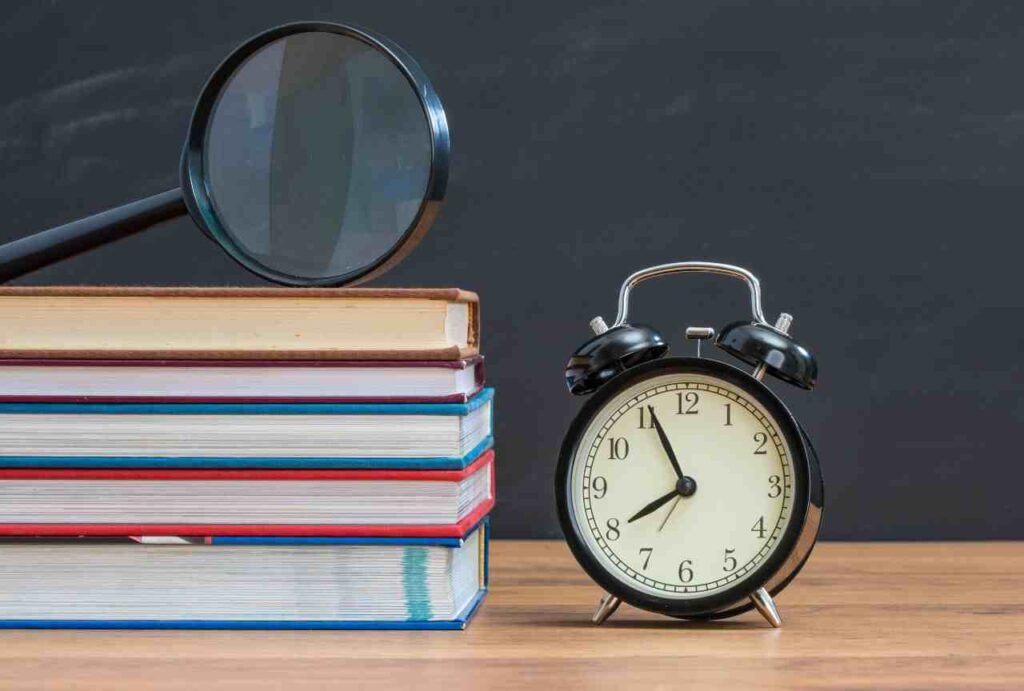Whether to study on the day of an exam is a question many students ask, especially during high-pressure periods. Some advice strongly discourages any review on test day, warning about stress and potential confusion. Others believe it can be the perfect moment to reinforce key points and refresh important concepts. The truth is, there isn’t one approach that fits everyone. What matters is how you manage that time and whether you use it effectively or not.
This article explores the benefits and risks of studying on exam day, explains when it actually helps, and offers practical strategies to make the most of it. If you’re wondering whether a quick review before walking into the exam room will help or hurt your performance, this will give you the clarity and structure you need to make the right decision.
1. Why This Question Matters for Every Student
🧭 Your Performance Depends on How You Use Your Time
The hours leading up to an exam are critical. How students use that time can directly affect their concentration, recall, and confidence. Whether it’s a final exam, midterm, or standardized test, the question of studying on test day is not a small one. Making the wrong choice could lead to stress, confusion, or wasted mental energy. Making the right choice, however, can provide structure and focus when it matters most.
🧠 Every Student Studies Differently
Not all study habits work the same for everyone. Some students retain information well when they review it one last time. Others need to mentally reset before the exam. The effectiveness of studying on test day depends on the individual’s learning style, level of preparation, and mental state. This is why it’s important to understand your own process and how short-term review affects your performance.
🎯 Short-Term Memory Can Make a Real Difference
One key reason this question matters is because short-term memory plays a major role during tests. If you’ve already studied consistently, a brief review session can refresh the most important facts, formulas, or methods. When used properly, test-day studying is less about learning something new and more about reinforcing what’s already been understood.
2. Why Some Experts Advise Against Studying Right Before a Test
🚫 Increases Stress and Mental Fatigue
Studying right before a test can increase mental overload, especially if the student hasn’t had enough sleep or is already feeling anxious. Many experts argue that this last-minute effort can add more pressure, leading to panic or doubt rather than clarity. When the brain is fatigued, it becomes harder to concentrate, even on material you’ve already reviewed several times.
😕 Risk of Confusion and Information Overlap
Reviewing new or unfamiliar content too close to the exam can interfere with what’s already stored in memory. Instead of sharpening your knowledge, it can blur key concepts, especially if the information is complex. This risk is higher when students attempt to study large volumes of material in a short period. Experts who discourage test-day studying often cite this risk of mixing or misapplying facts.
💤 Lack of Sleep Cancels Out Benefits
Another reason some discourage test-day studying is the tendency to reduce sleep to create time for last-minute reviews. Scientific studies consistently show that sleep is essential for memory consolidation and alertness. Students who choose cramming over rest usually perform worse, even if they feel more prepared. Experts highlight that even the best study session can’t make up for poor sleep quality the night before an exam.
📉 Mental Burnout Can Lead to Underperformance
When a student reviews for too long or in the wrong state of mind, the result is often mental exhaustion. This can slow down processing speed, reduce critical thinking, and make it harder to interpret exam questions correctly. Rather than helping, unplanned studying on test day can interfere with mental clarity—something you’ll need to perform at your best.

Also Read: How to Remember What You Study (Never Forget Again!)
3. Why Studying on the Day of the Exam Can Work — If Done Right
Contrary to the belief that all studying should stop the night before, many students actually perform better when they do a targeted review on the morning of the test. The key is to study with intention, not pressure. When used strategically, test-day studying can improve focus, boost short-term memory, and support better test-day execution.
🧩 Reinforces Key Information at the Right Time
Short-term memory plays a role in test performance, especially for subjects that involve facts, formulas, definitions, or quick reasoning steps. A focused review on test day can bring important material to the front of your mind, making it easier to recall during the exam. This is particularly helpful for subjects that require rapid retrieval of information, such as science, history, or math.
✅ Builds Confidence Through Controlled Review
When students review only what they’ve already prepared, it can serve as a confidence booster rather than a stress trigger. It confirms that the effort made in the previous days wasn’t wasted and gives a sense of control. Instead of approaching the test with uncertainty, students can walk in knowing they’ve strengthened their grip on the most relevant information.
⏳ Offers a Final Opportunity to Clarify Small Gaps
Sometimes, even well-prepared students notice one or two areas they feel unsure about on the morning of the test. A brief, structured review gives the chance to clean up those weak spots—not by learning new material, but by double-checking what was previously studied. As long as the review is focused and time-limited, this can be a valuable use of time.
4. The Smart Way to Study on Test Day: What Actually Works
Studying on the day of the exam can improve performance when done with structure and intention.
☀️ Morning Before the Test: Start with Light, Focused Review
The best time to study is early in the day, when your mind is fresh and distractions are limited. The focus should be on reinforcing material you’ve already studied—not learning anything new.
What to do:
- Review summary notes, concept maps, or flashcards
- Focus on key concepts, formulas, definitions, and common question types
- Use self-testing methods such as quick quizzes or retrieval exercises
What to avoid:
- Reading full chapters or rewatching long videos
- Jumping into topics you haven’t studied before
- Reviewing without a time limit or goal
A light session of 30 to 45 minutes is often enough to refresh your mind without overwhelming it.
⏱️ Keep It Short, Structured, and Purposeful
Studying on test day should be a focused check-in—not a full study session. You’re not aiming to process large amounts of material but to sharpen what’s already there.
How to structure it:
- Break it into segments (e.g., 15 minutes of flashcards, 10 minutes of practice questions)
- Use a checklist of high-priority topics
- Set a clear stopping time to avoid running too close to the exam
This approach reduces unnecessary pressure and ensures your brain has time to shift into test mode.
🧘 Choose the Right Environment
Your study space on exam day matters. It should support focus and minimize distractions or anxiety triggers.
Ideal environment tips:
- Study in a quiet, comfortable spot
- Avoid crowds or overly chatty peers discussing last-minute doubts
- Keep your phone on silent or out of reach during review time
Avoid situations where others’ stress or uncertainty can affect your mental state.
🚪 Right Before Entering the Exam Room: Stay Sharp, Not Stressed
The final few minutes before the exam are not for heavy review. They’re best used to mentally organize your thoughts and maintain calm focus.
What you can do:
- Mentally walk through the most important formulas or facts
- Scan a very short list of high-priority notes (if needed)
- Take a few deep, controlled breaths to stabilize your focus
Avoid cramming or rushing through pages of notes right before entering. This can cause confusion and mental fatigue at the worst possible moment.
5. Extra Tips to Boost Performance Without Overstudying
- Get at least 7–8 hours of sleep the night before
- Eat a light, balanced breakfast to maintain energy
- Stay hydrated throughout the morning
- Limit caffeine to avoid jitters or crashes
- Use deep breathing to stay calm and focused
- Avoid comparing preparation with others
- Arrive early to avoid last-minute pressure
- Bring any required materials (ID, pens, calculator) in advance
Studying on the day of the exam is not a bad idea if done with structure, clarity, and self-awareness. It can improve focus, sharpen memory, and reduce uncertainty—when used the right way. Preparation is not just about how much time you spend, but how well you use it. A calm, focused mindset paired with smart review can set you up for your best performance.



